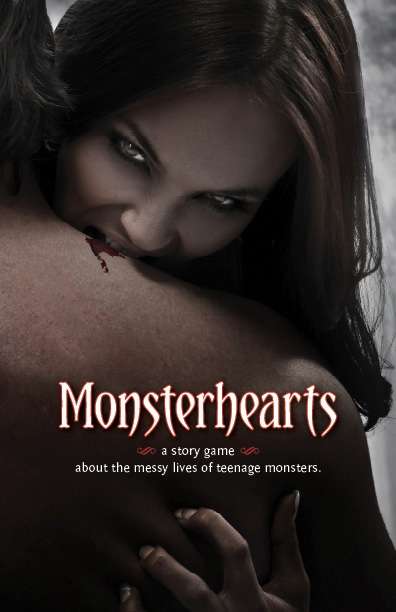Having previously written about playing games based on songs (Part 1 and Part 2), it’s something I now can’t help but think about when listening to music.
Damnit…
I just want to write more of these posts. I like them.
When I started typing up this post, it was actually going to be about Leonard Cohen’s Hallelujah, but it was feeling a bit non-specific, so here we are with a Beatles classic instead!
Eleanor Rigby by The Beatles tells the story of two lonely individuals, Eleanor Rigby and Father McKenzie, who live their lives in isolation and despair. The song delves into themes of loneliness, alienation, and missed opportunities. This song can serve as the basis for a narrative-driven scenario in a tabletop roleplaying game.
Let’s start with a reminder of the song, itself:
The game could be set in a modern-day or historical urban setting, such as a bustling city or a small town with a close-knit community. The atmosphere would be filled with a sense of melancholy, hidden stories, and unfulfilled connections. The players would explore the depths of the human condition, uncovering the secrets and struggles that lie beneath the surface.
Each player would create a character; each with their own backstory, desires, and emotional baggage. The characters could include individuals who are disconnected from society, struggling with personal tragedies, or searching for meaning in their lives. They might be Eleanor Rigby-like figures, living on the fringes of society, or Father McKenzie-like figures, burdened by their responsibilities and the weight of their choices.
The game’s plot could center around the characters’ interconnected lives, revealing their individual stories and the ways in which their paths intersect. Each character would have their own personal quest or dilemma that they are grappling with. The players would navigate through a series of encounters and events, exploring the depths of their characters’ emotions and relationships.

The game could be driven by character-driven moments and interactions. The players would have opportunities to form meaningful connections, confront their past mistakes, and perhaps find redemption or solace. The story could weave together themes of love, loss, forgiveness, and the power of human connection.
As the game progresses, the characters would come to realize that their lives are intertwined in unexpected ways, and their actions and choices can have profound impacts on each other. The game’s resolution could involve a moment of catharsis or revelation, where the characters have the chance to break free from their isolation and forge new paths toward happiness and fulfillment.
I think that Eleanor Rigby, as a song, would provide a narrative-rich basis for planning a game that explores these themes of loneliness, missed connections, and the power of human compassion. The players can delve into the depths of their characters’ emotions, forging bonds and confronting the past, ultimately striving for a sense of hope and renewal. I think we’d be looking at a lower player-count for this game. It would be unwieldy with a larger group.

For a scenario inspired by Eleanor Rigby, there are several game systems that could be a good fit to capture the narrative-driven and emotional aspects of the story. Here are a few options:
FATE Core

Fate Core is a versatile and narrative-focused roleplaying system that emphasizes storytelling and character development. It allows players to collaboratively create the world and shape the narrative. Fate Core’s flexible mechanics can easily accommodate the exploration of themes like loneliness, personal struggles, and the power of human connections. Characters can be clearly defined using the Aspects system.
PbtA Games

PbtA (Powered by the Apocalypse) games, such as Monsterhearts or Urban Shadows, excel at creating dramatic and character-driven stories. These games use a playbook-based system that encourages roleplaying and character development. PbtA games often emphasize the relationships and conflicts between characters, making them well-suited for exploring the themes of isolation, personal tragedies, and the pursuit of redemption.
DramaSystem Games

DramaSystem, created by Robin D. Laws, focuses specifically on character interactions and dramatic storytelling. Originally implemented in his Hillfolk RPG, it is designed to capture the complexities of human relationships, with mechanics that encourage players to create compelling narratives and explore emotional depth. DramaSystem would be an excellent choice to delve into the intricate personal dramas and connections between characters in a scenario inspired by Eleanor Rigby. To be honest, I wouldn’t use this system in its entirety. Laws is really great at identifying a specific problem and then building a game that really excels in that area… but not so much in others. DramaSystem does this with interpersonal relationships and Gumshoe does it with investigative roleplay. I think these systems are probably best used for inspiration; taking their best elements and building them into another, perhaps more solid, system.
Ten Candles

Okay, so… this suggestion takes the game off in a somewhat different direction, but bear with me! If you want to capture the atmosphere of melancholy and isolation, Ten Candles is a great choice. It’s a unique, indie roleplaying game that focuses on storytelling and creating an intense, suspenseful experience. The game is set in a world where darkness is slowly consuming everything, and players are faced with inevitable doom. The game’s mechanics, using actual candles, add a sense of impending dread and the exploration of personal struggles. There’s no reason that this mechanism cannot be tweaked to represent a declining mental state, health, or community. There’s potential, here.
Remember that these are just a few suggestions, and there are many other game systems that could be adapted to suit a scenario inspired by Eleanor Rigby. I actually think that Good Society would be another potentially suitable system. Ultimately, the best choice will depend on your preferred play style, the level of narrative focus you desire, and the mechanics that best support the themes and tone you want to explore. Also if you’re going weird by using Ten Candles…


3 Comments